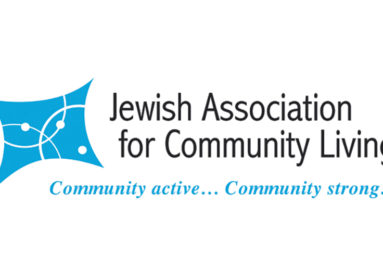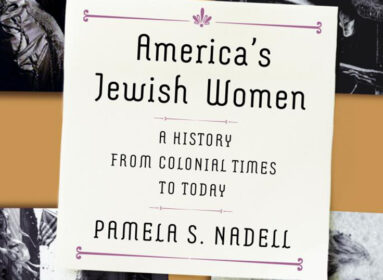
Stamford man works to make Israel a stronger society through intercultural exchange
By Cindy Mindell
Not every young American fresh out of college gets to apply his or her studies to the real world. But when the curriculum touches on some aspect of Israeli society, there’s probably a program in Israel that offers an invaluable hands-on experience.
When Daniel Hammerman of Stamford graduated from American University in May, he decided to translate his BA in international relations into just such an opportunity. He was accepted to the Yahel Social Change Program, a nine-month service-learning immersion experience of Masa Israel Journey in the Arab-Israeli community of Lod and the Ethiopian-Israeli community of Ramat Eliyahu, Rishon L’Zion.
Hammerman chose Lod.
“I wanted to get some experience either with an organization that works with Israel or doing work that’s improving Israel on the ground,” he says. “I studied the [Israeli-Palestinian] conflict in college and working with Arabs on the ground and Jews on the ground and make positive change seemed like a great opportunity.”
Since arriving in October, Hammerman has spent mornings at an Arab elementary school and two days a week in a community garden and a youth center. Once a week, he teaches English language through music and singing.
“My kids are excited to learn music in general, since they come from homes where either the parents are not largely active or they do not encourage forms of artistic expression like music,” he says. “With this lesson, I am providing my kids with the opportunity to develop and utilize their love of singing and also learn about a new language and culture directly from an adherent to that culture.”
At the same time, Hammerman is succeeding in building bridges between two divergent communities — Arab and Jew.
Upon returning from a trip to Israel in January, where he spent a day visiting at the Arab school where his son teaches, Hammerman’s father, Rabbi Joshua Hammerman of Stamford’s Temple Beth El, who made the trip with Dan Hammerman’s mother, Mara, concluded that “Lod, like Stamford, demonstrates that in an increasingly polarized world, diversity can be a priceless asset.”
“The school is a place of vibrant learning, where co-existence and friendship are at the core of the curriculum,” Rabbi Hammerman wrote on his blog. “The students are being taught precisely how not to have hatred toward the Other.
“The kids engulfed us. ‘You’re Dan’s mother and father,’ they said to us in English – having looked forward not only to meeting us, but also to having the opportunity to practice the words ‘mother and father.’ They asked us about America, wanted to see pictures of our dogs, and were especially interested in hearing us talk about the wonders of New York and Disney World. One of the Arab girls, Hilba, who is really bright, came over to tell us that until recently she wasn’t confident speaking English, ‘but because of Dan I love English.’”
Most of all, Hammerman is learning a lot about Israeli Arabs.
“Living in Lod, I can find Israeli Arabs anywhere,” he says. “They are my cashiers at the supermarket, my taxi-drivers, and my fellow bus passengers, among other things. Each time I interact with Arabs in the city and have a conversation with them in Hebrew, I more deeply understand their integral nature to Lod and Israeli society at large.”
He gets up-close exposure to the range of views on the relationship between these Israeli citizens and their country.
At one end of the spectrum, he and his Yahel group have heard from an Arab-Israeli journalist who is extremely anti-Zionist and uses adversarial language to describe Israel’s occupation of Palestinians, including himself.
“During our meeting, this journalist described in great detail the massacre that Israeli soldiers conducted against Arabs in the center of Lod during Israel’s 1948 War of Independence in a location currently known as Kikar HaPalmach, Palmach Square, named after the unit of Israel’s defense forces that existed before the establishment of the Israel Defense Forces,” Hammerman recalls. “According to him, by using this name for a central location in Lod with historical significance, and even by calling the city by its Hebrew name instead of the Arabic name, ‘Lid,’ that existed before, the city’s existence under Israeli control erases its Arab narrative and gives the Israeli occupiers full claim over the city’s legacy.”
At the other end of the spectrum, Hammerman has interacted with many Arab counterparts in Lod who share interests and attitudes.
“These are fun young people just like me, and I have been able to talk to them just as I would with any other Israeli,” he says. Through meetings with Juzur – an organization that seeks to provide Lod’s Arab population with increased opportunities in areas such as education and employment – he has engaged in many discussions with the Arab volunteers about the positive aspects of Israel.
“We all enjoy similar hobbies, such as going up north to the Galil for the amazing scenery and going to Tel Aviv and Rishon L’Zion for fun nights out,” he says. “After spending so much time learning about the Arab-Israeli conflict, I was surprised to meet Israeli Arabs with whom politics does not come up and I can just relax and enjoy their company. In essence, when contemplating the dynamics of Arabs in Israeli society, you need to think about the multiple sides apparent and not just the extreme voices you hear in the news.”
Of course, there are aspects of American life that Hammerman misses; for one, “knowing exactly to which Jewish community I belong,” he says.
“I grew up in a large and supportive Conservative Jewish community [where] I always felt comfortable going to Conservative-style services and associating myself with Conservative activities such as Camp Ramah and USY,” says the 22-year-old young man. “In Israel, however, there are so many Jews and only a small number of them identify with a movement other than Orthodox. In Lod especially, I have learned that even if your traditions in daily life match most closely with the Conservative movement, the typical move is still to go to an Orthodox synagogue because those are the majority of synagogues available. This has made it very hard for me to go to synagogue because I feel I am not fully connecting to services the way I could back home.”
Despite being able to stay in touch via Skype and Facebook, “I definitely miss my family and friends from home,” Hammerman says. “That is something I have been struggling with since I left home, and I know I will continue to struggle with it if I choose to stay here.”
During the application process, Hammerman considered Yahel as a possible precursor to making aliyah.
Toward that end, “I came here with the goal of building a foundation in Israel that could lead to a broader career path,” he says. “I like the intercultural exchange and I want to do work between cultures that really makes Israel a stronger society and a base for international community.”
In addition, Hammerman wants to smooth the way for other young Americans to follow his example.
“A lot of Americans feel attached to Israel and feel like they can make more of a difference from home,” he says. “Really, coming here through a program like Yahel, they can really make change and have a big impact.”
His father would agree.
“I’m not naïve enough to say that one volunteer program is going to change the world,” blogged his father upon his return from a visit with his son. “But I know that at least one group of Arab middle schoolers now have had a positive encounter with Jews – and I must add, with Americans – one that differs greatly from the images that they undoubtedly have seen both in the media and on the street.”
Follow Daniel Hammerman’s blog, “Live. Love. Lod.:” http://danhammermanyael.blogspot.com/.








 Southern New England Jewish Ledger
Southern New England Jewish Ledger











